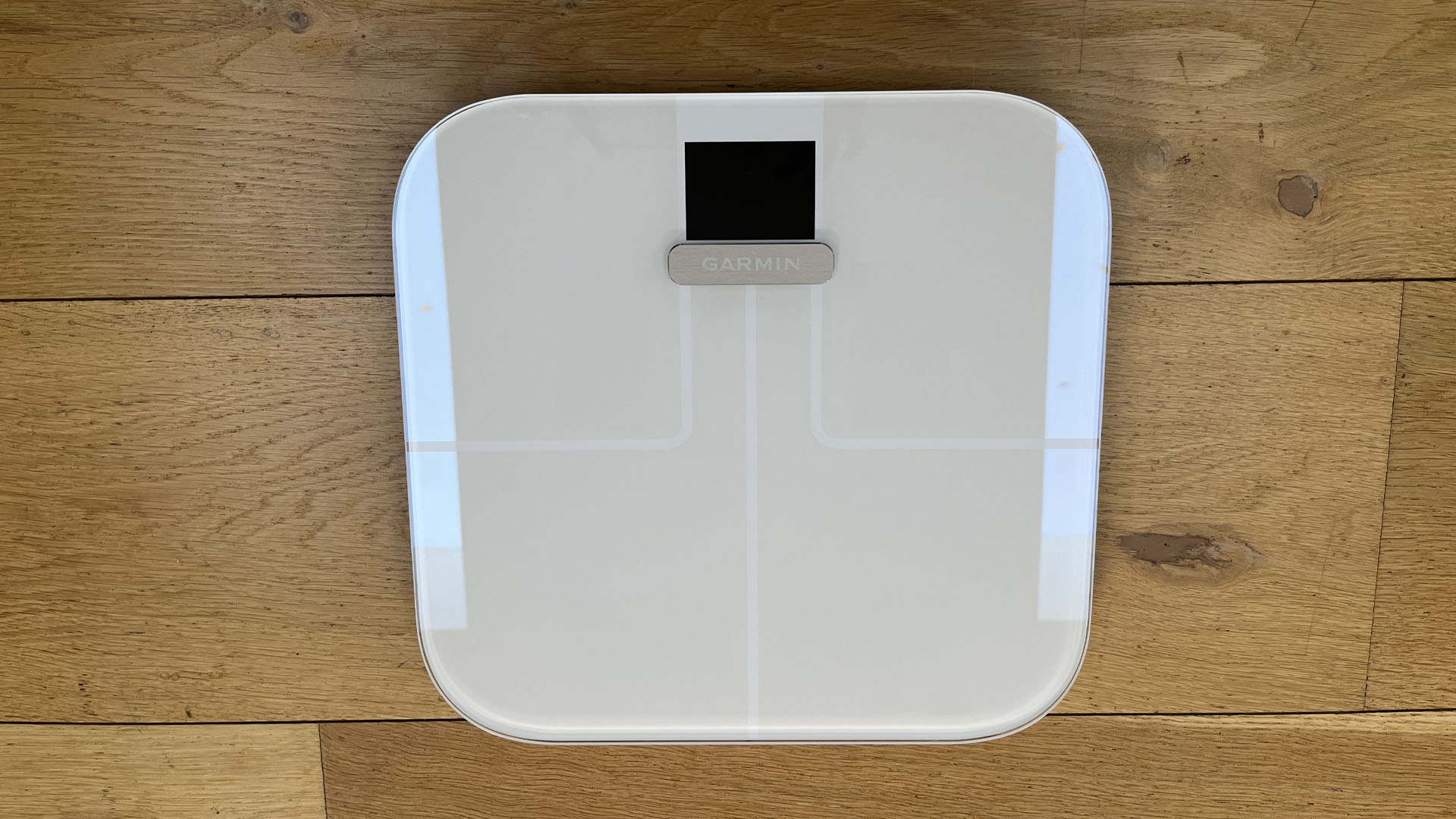Live Science Verdict
Small, stylish and well-designed, the Garmin Index S2 smart scale has a crisp color display, a wealth of body measurements and is easy to set up. But it’s an expensive device that left us feeling a little short-changed.
Pros
- +
Easy set up
- +
WiFi connectivity
- +
Measures weight and body composition
- +
Crisp color display
Cons
- -
Slow weighing process
- -
Cluttered screen info
- -
App doesn't add much
Why you can trust Live Science
The Garmin Index S2 is a smaller and lighter version of the Index Smart Scale – with a new color display, better sensors and more body composition measurements. It syncs to the Garmin Connect app via WiFi so all your data is stored and tracked in one place, particularly handy if you own any other Garmin devices like one of the best Garmin watches.
Connectivity: WiFi, Bluetooth
Size: 12.6in x 12.2in (32cm x 31cm)
Max users: 16
Stats: Weight, weight trend, BMI, bone mass, skeletal muscle mass, body fat percentage, body water percentage, weight-only option, multiple daily weigh-ins
Max weight: 181.4kg/400lbs
Supported apps: Garmin Connect, MyFitnessPal
Batteries: 4 1.5V AAA (provided)
Some smart scales have limited data on the scale itself, then offer further insight and context within the app. Sadly this is not the case here. The scales and app provide the same stats, with the exception of the health trends graphs available on the app. So really all you’re getting is a history of past weigh-ins and body composition metrics, with no context or explanation.
At $149.99 / £129.99, we would expect a bit more from Garmin, and don’t think the price tag matches the hype. Read on for our full in-depth review, including design, features and performance. For more options, check out our round-up of the best smart scales on the market.
Garmin Index S2: How it works
Here’s the science part: smart scale tech works by sending a small electrical charge into the body. When it hits resistance, the scale can then measure your body composition data. Some scales show you stats on the display itself, while others need a companion app to access insights and advanced information.
It’s safe for most people, but if you have a pacemaker, medical implant or are pregnant, check with your doctor before using one.
Not all smart scales are created equal, and some are more accurate then others, however they are a useful way to track changes in body composition, and motivate people to create healthier habits.
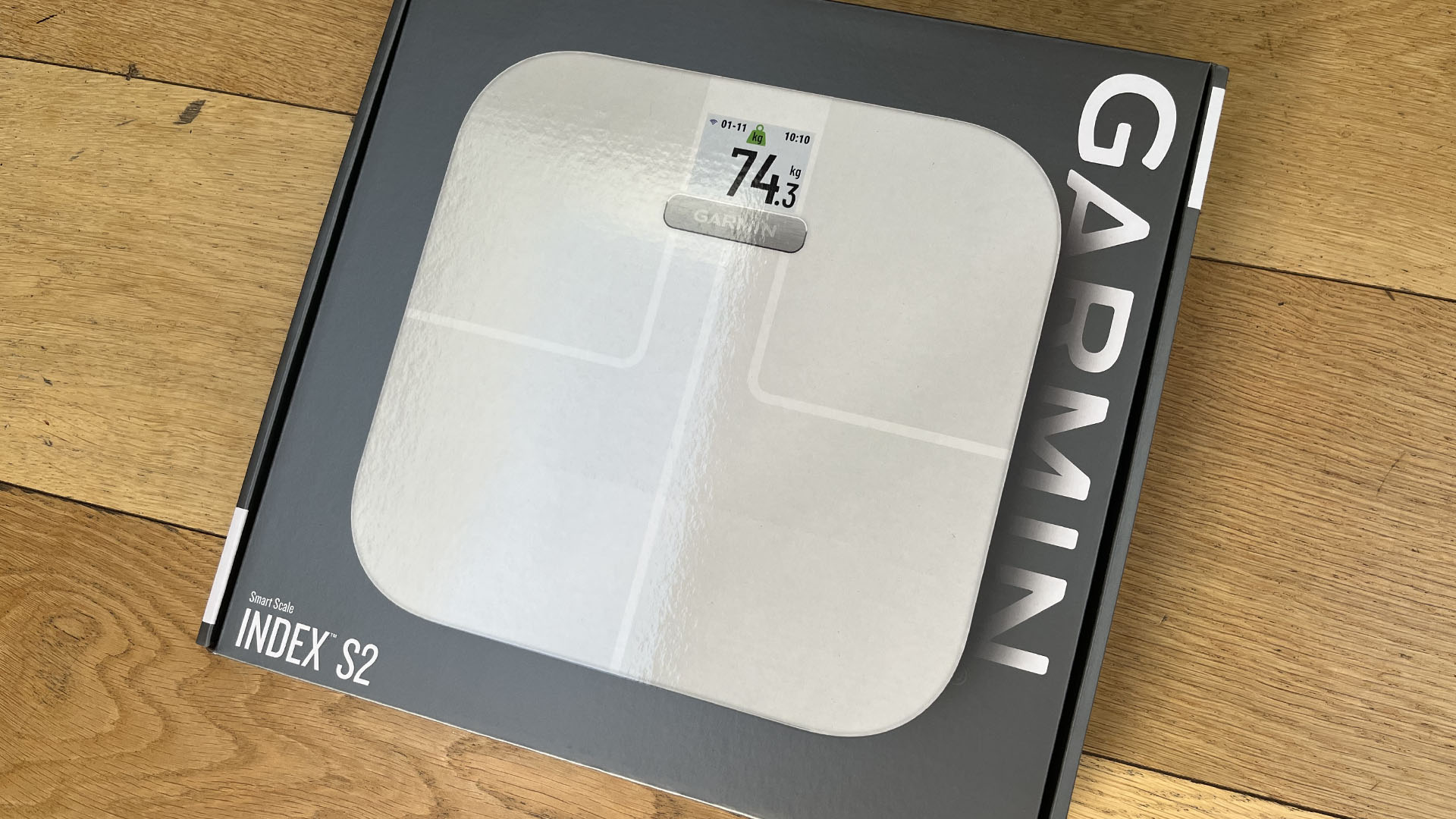
Garmin Index S2: Design and features
As you might expect from Garmin, the Index S2 is a sleek looking device with rounded corners and a crisp and clear color screen. It’s battery powered and comes with four AAAs and ‘risers’. Put the batteries in and attach the riser blocks to the feet if you plan to use the scales on a carpet or rug. Hit the ‘reset’ button on the back to set it up and add it to your WiFi network. You can easily toggle to change the units from stone, pounds or kilograms.
Get the world’s most fascinating discoveries delivered straight to your inbox.
Once you’ve hit ‘reset’ the scale will prompt you to pair with the Garmin Connect app. It uses Bluetooth for this bit, but then the rest of the updates happen via WiFi. Input your gender, height, weight and date of birth, then your activity level (low, medium or high) and name or initials (to identify which user you are) and you should be good to go.
Our tester had a few technical issues connecting the scale to her WiFi, but after several failed attempts she closed the app and re-opened it. By this point it had connected.
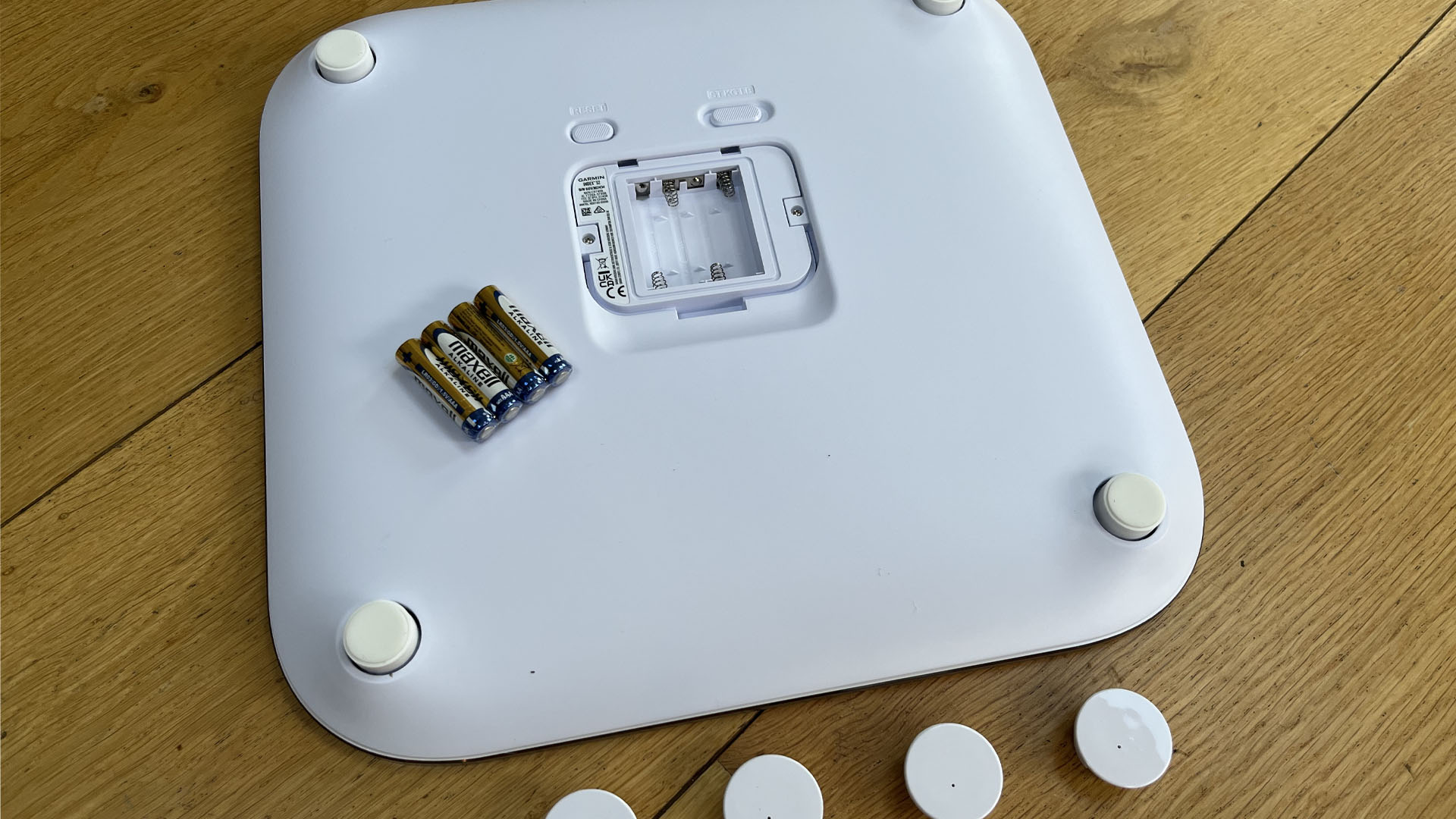
What we like about these scales is they are fully customizable, so you can change which widgets you want to display during weigh-ins. You can see lots of stats on the scale itself – including skeletal muscle mass, body water, BMI and bone mass. Each metric has a color icon above it on the scale, which you soon recognise after multiple uses. Open the app and you can see changes in these stats over the course of a day, a week, four weeks and a year.
You can also view the weather report on the display, which feels slightly unnecessary for a smart scale (although not uncommon), but might be useful during morning weigh-ins. The Garmin Connect app integrates well with the Garmin ecosystem, but it mainly serves as a weight log with some body composition stats in it.
One thing that didn’t sit well with us was the emphasis on multiple weigh-ins. This might be useful if you’re an elite athlete and need detailed metrics pre- and post-workout for training purposes, but for the average Joe, we felt that tracking your weight throughout the day could lead to obsessive behavior.
The Garmin Index S2 is also one of the more expensive products available, and while we loved the big color display, the WiFi connectivity and impressive body composition metrics, we didn’t feel the features on offer justified the price tag – particularly as no context is given about any of the data gathered. The scales and app show exactly the same info, with the exception of the app’s one day, weekly, monthly and one year trend graphs.
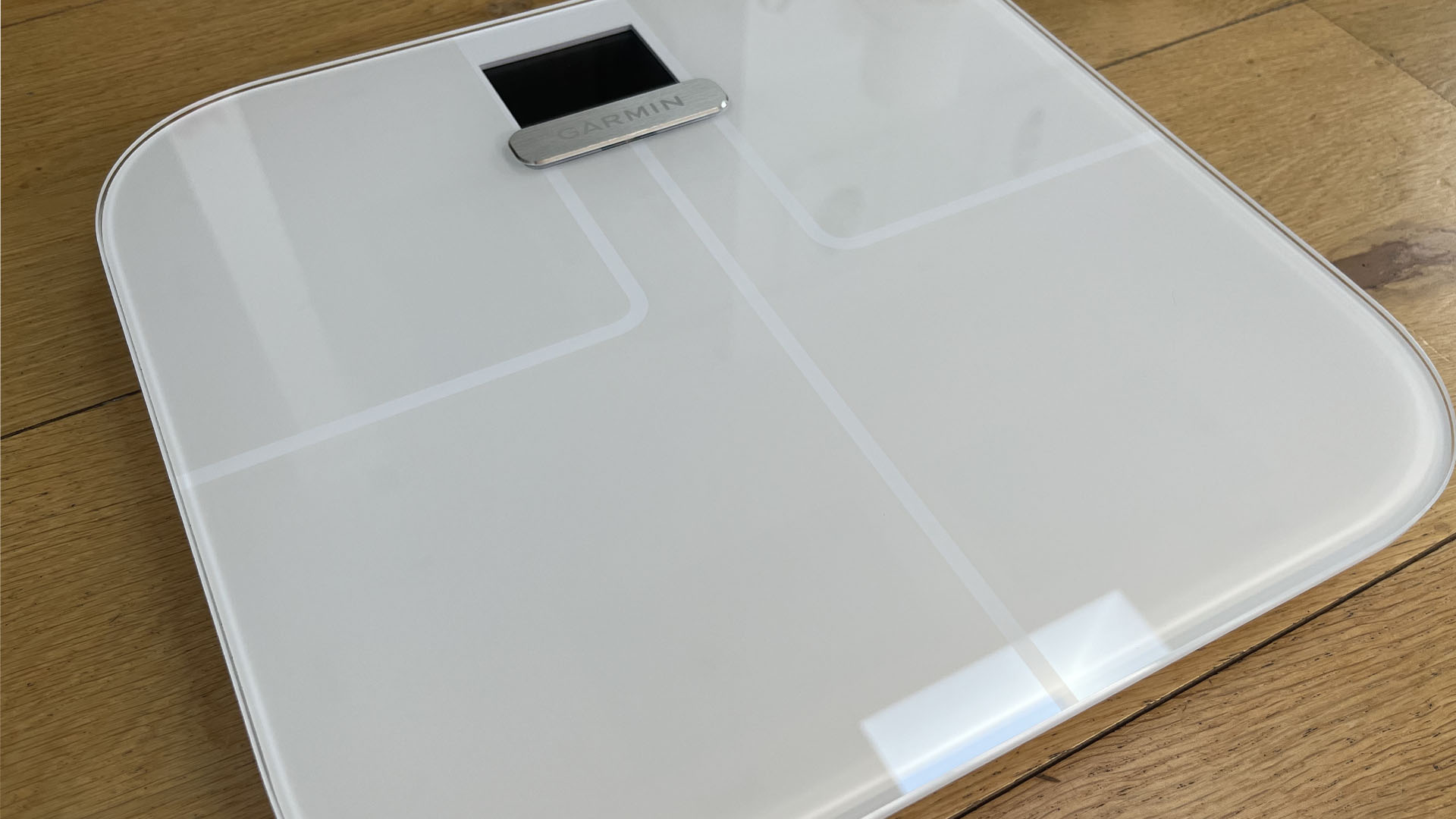
Garmin Index S2: Accuracy and performance
Readings on the Garmin Index S2 are fast and easy to read and the app is a great one-stop source for health and fitness data, particularly if you already own a Garmin watch.
We had a couple of glitches with getting the app to connect to the device via WiFi at first, but once we were in it was all very straightforward.
When compared with a professional body composition reading at the gym, the Garmin Index S2 scale was the most accurate in testing – reading only 0.1kg higher than the pro machine.
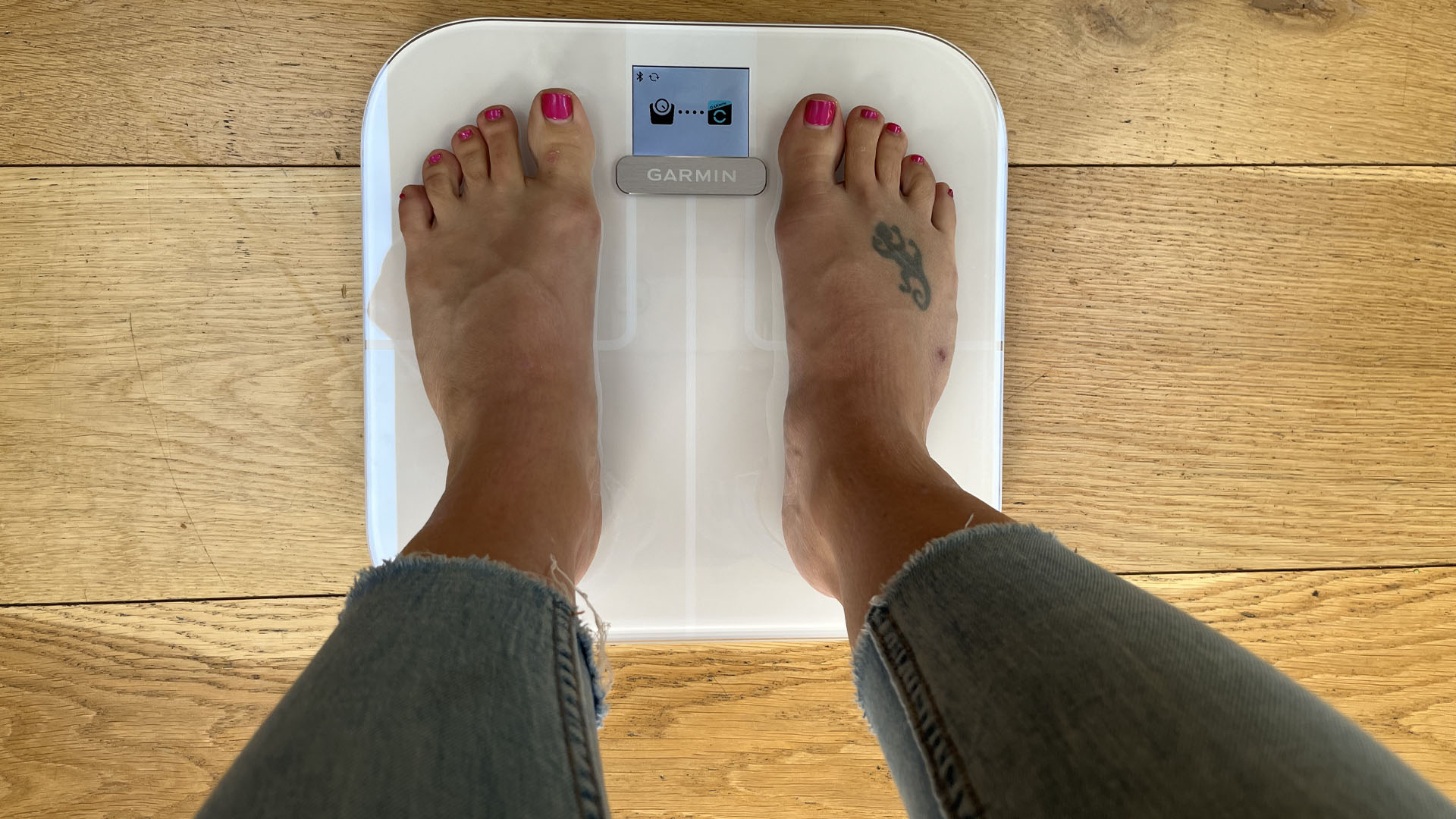
Garmin Index S2: Verdict
Easy to set up with convenient WiFi and Bluetooth connection, the Garmin Index S2 is a decent but expensive smart scale suitable for lots of people.
With a ton of body composition metrics to monitor, it’s great to have so much info on the scales itself, but the slightly cluttered display makes it hard to read. We also found it a shame that the same data was on both the scales and the app (with the exception of the trend graphs), meaning you’re not really getting any additional insights to track progress. The emphasis on multiple daily weigh-ins didn’t sit well with us, and could be triggering for people struggling with disordered eating.
Ultimately, the Garmin Index S2 works well, with accurate results in testing, but it slightly under-delivers for the high price.
If this product isn't for you
Xiaomi Mi Smart Scale 2
Minimalist and sleek, the Xiaomi Mi Smart Scale 2 is a well-designed battery powered smart scale that can serve 16 users. It syncs easily with the Zepp Life app, and is most effective when paired with another Mi product like the watch or smart band 7 fitness tracker. You can access 13 body composition readings, impressive for the low price, but it lacks WiFi.
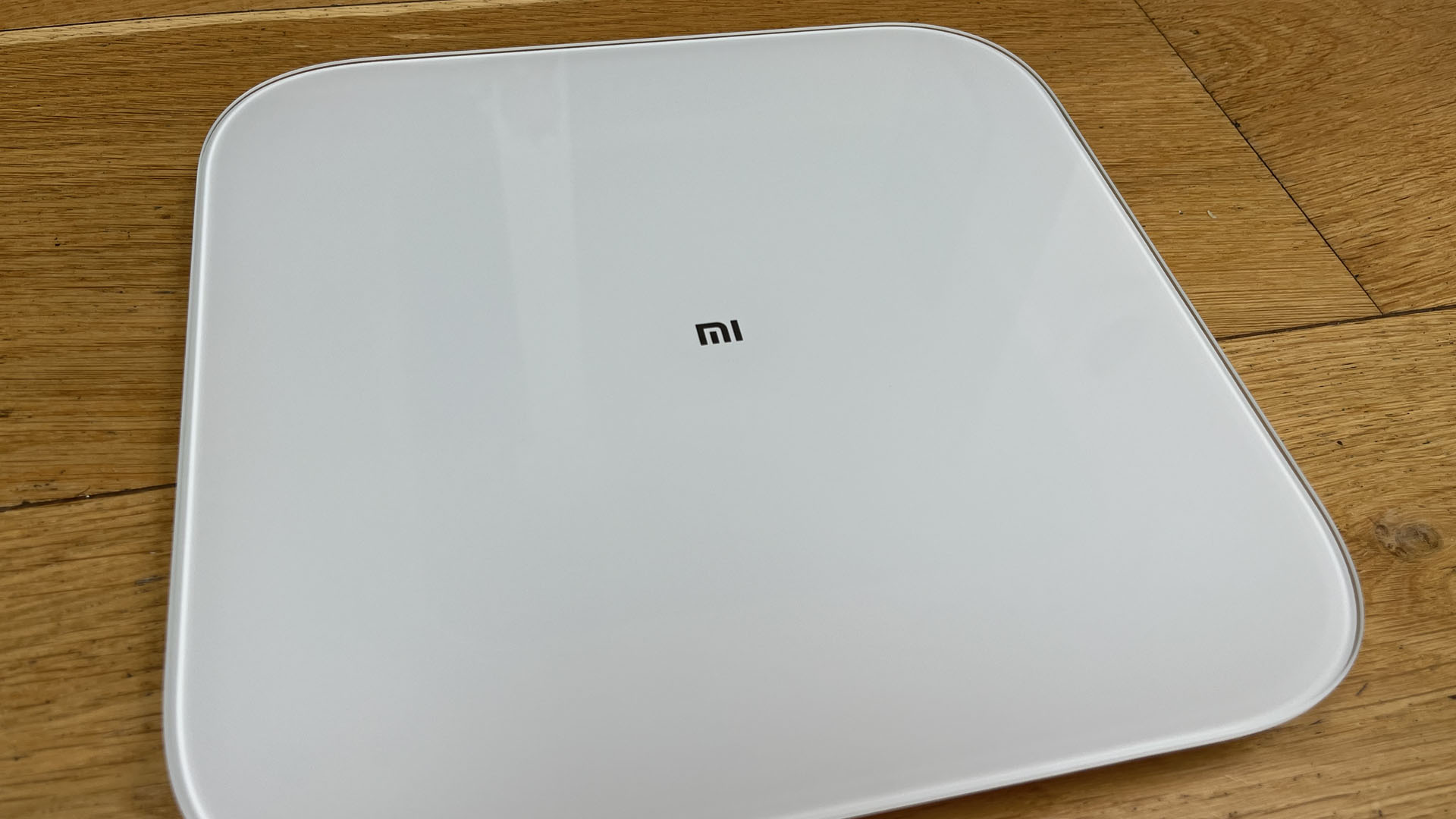
Withings Body BMI Wi-Fi Scale
The simplest of the Withings scales ($59 / £59.95), the Body BMI Wi-Fi scale is useful for anyone just wanting to track weight and BMI. You can get advanced insights on the decent Health Mate app, which syncs with over 100 other health and fitness apps so you can view all your data in one place. It lacks body composition metrics, but it is fairly accurate, easy to use and affordable.
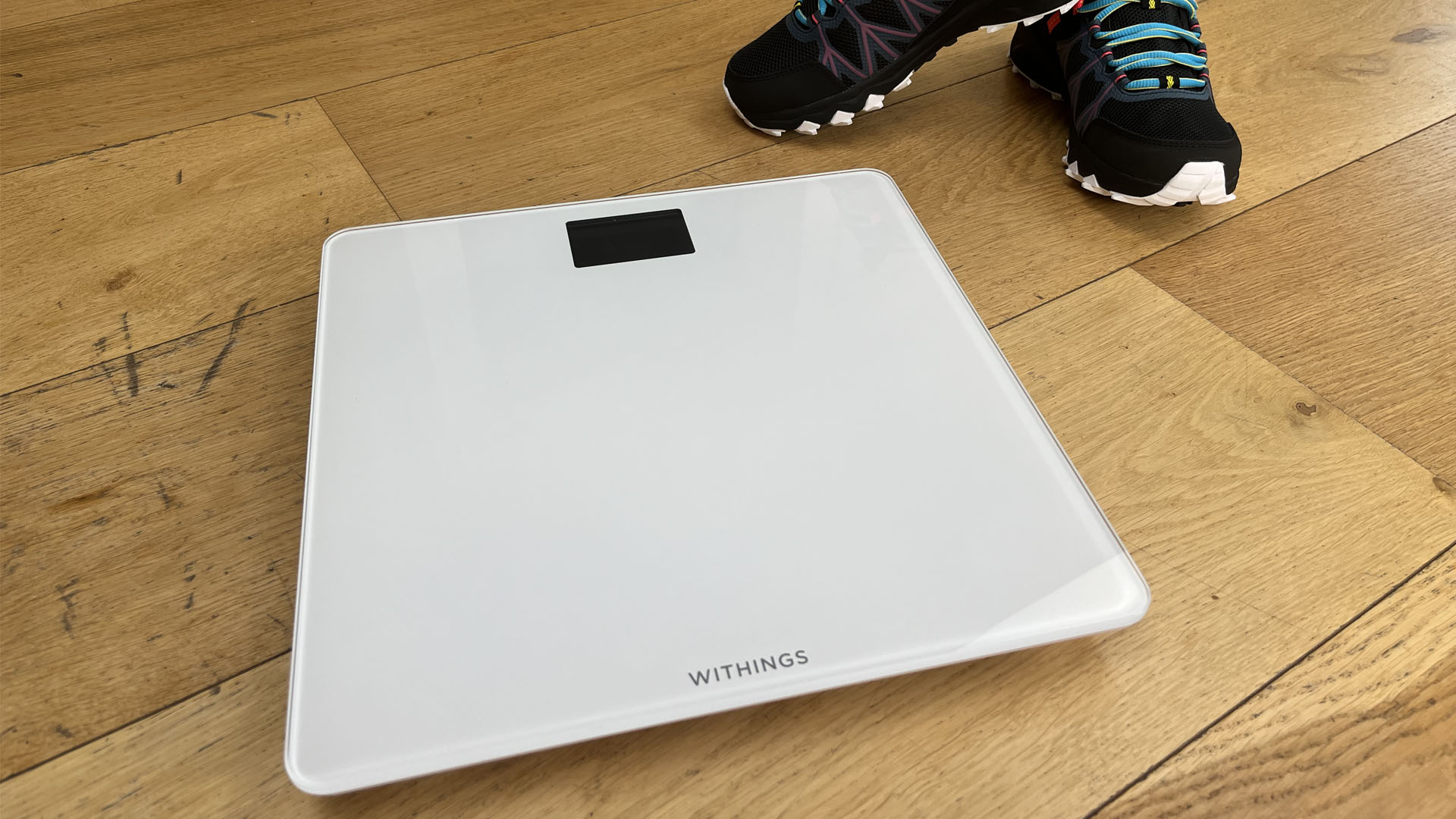

Maddy Biddulph is a freelance health and fitness journalist with over 26 years of experience working for consumer media in the US and UK. As a Level 3 personal trainer and weight loss advisor she is used to trying out and reviewing the latest health and fitness products. At Maddy Biddulph Personal Training, she runs one-to-one and small group sessions, as well as group exercise classes. She specializes in mobility work with seniors and runs regular chair workouts in her hometown of Oxford.





